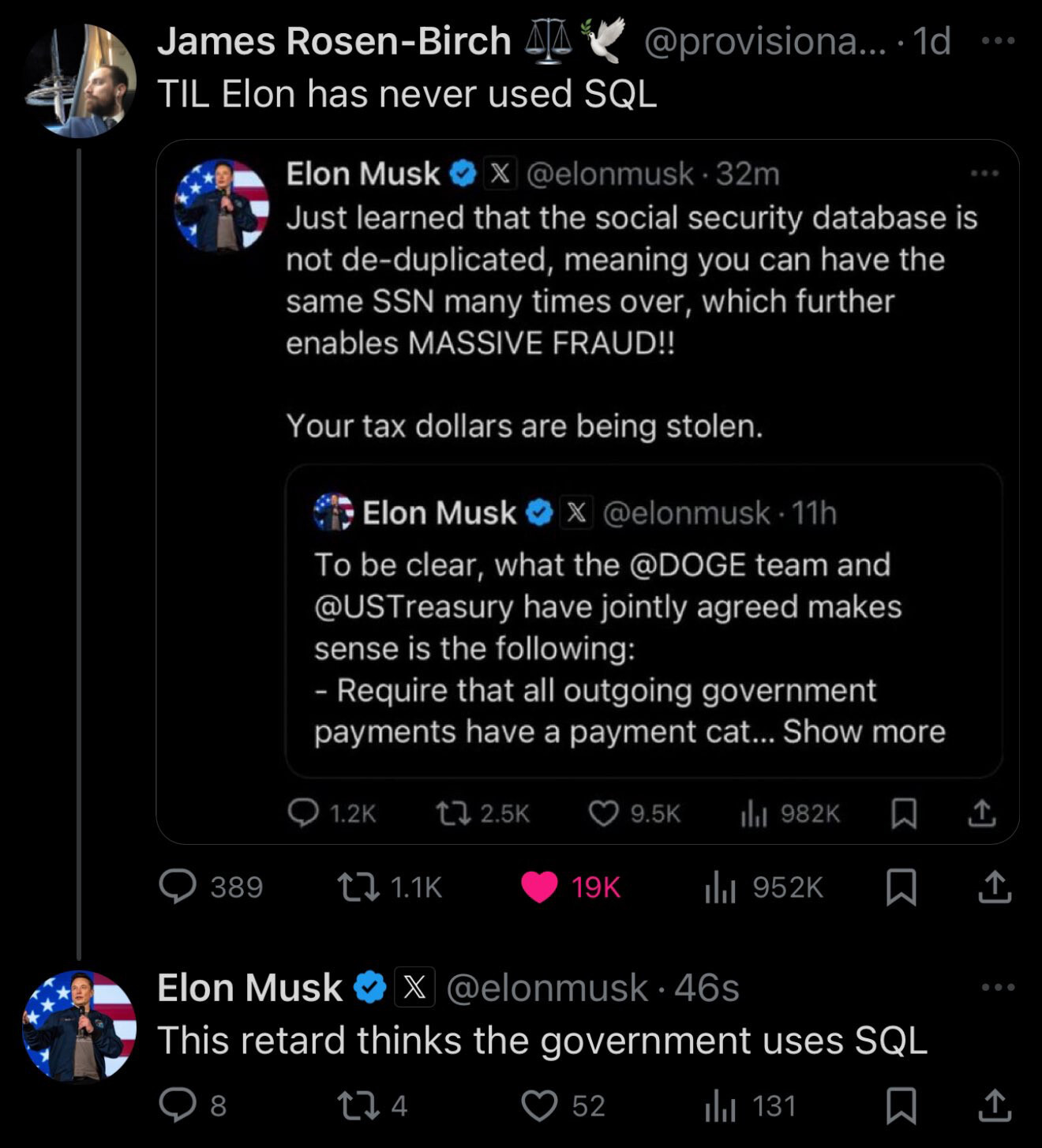Ok genuine question, what is the difference between a SQL database and a simple Excel spreadsheet?
Sql Database:
- Tables: like excel sheets
- Rows: like excel rows
- Temp Tables: you can make a throw away table where data is all organized how you need it and it just goes away when you're done.
- Indexes: stores information about all the data to speed up searches. you can have 10 million rows in SQL and still get pretty quick results.
- Relational data store: The default in SQL is to do a kind of inter-sheet linking. You can set up references so that if you delete a line in one of the linked sheets, it won't let you because there's an active reference to it in another sheet. Like if you try to delete the Ohio Row from the states table, it can be made so that you can't because users are linked to Ohio in their another sheet. (data integrity)
- Joins: You can logically link multiple tables together. Your data can be structured over many many tables with a one to many relationship, so massive reduction in storage and memory needs.
- Memory: SQL only uses enough memory to load what you're using. You can have a 100GB database and maybe get away with a few gigs of ram. Excel needs to load everything into ram.
- Transaction: SQL can wrap a series of operations into a transaction. If there's something wrong with the data, it can rollback everything that happened in the transaction. You can safely operate on large amounts of data without danger of corrupting it if you do something wrong.
- Procedures: SQL can store off code and compile it down to be much much faster. you can surface just a simple function instead of full db access and end users have a hard time hacking apps to get data they shouldn't see out of the database.
- Replicas: You can set up a secondary server with the same databases and chain them so that the origin server takes all the changes and the secondary server is a backup, read-only replica.
- Incremental backups: You can set up the servers so that the changes are noted day in and day out, so if you have a REALLY large database, you can restore it to any point in time with just a regular backup and all the logs for the day up to the latest.
Excel Database:
- Tables and Rows
- Easy to edit in a client everyone has
- Supports some decent macro capability
- Can be problematic when more than one person is editing at the same time
- Can struggle with large datasets.
- really likes to misinterpret data as dates
- doesn't do most of what *sql can do
- edit: wrong word
A whole lot. Too much to cover in one post in any kind of detail.
A modern relational database management system (RDBMS) is a highly optimized beast. How it accesses storage is very carefully considered. It has a whole mini language for defining relations between data. There are tools for debugging specific queries to make them faster. They index data with tradeoffs between read and write speeds. There are sophisticated locking mechanisms so multiple users can read and write at the same time. They have transactions where many alterations can be packed up together and written efficiently at once. Those transactional alterations are atomic, meaning there are guarantees that all of them happen or none of them happen. The entire thing is based on set theory, and it has survived attacks by many other pretenders to the throne for decades.
And if you're using Oracle, you can get all that while paying a highly optimized pricing model set up by the best financial advisors Larry Ellison can find to maximize value extraction from your company.
The amount of data, sql is designed to manage large datasets, millions of rows. Excel has its limits.
SQL is a language used to manage and interact with most relational databases so it is used often to describe relational databases. There are many tables in a relational database, each is very much like an excel tab. The excel spreadsheet can have many tabs relating to each other. So kinda similar. However a relational database is better defined, more functions and forced relationships, and most important space efficenct. Excel takes probably 100-1000 times more space, and that is best case.
😅
Programmer Humor
Welcome to Programmer Humor!
This is a place where you can post jokes, memes, humor, etc. related to programming!
For sharing awful code theres also Programming Horror.
Rules
- Keep content in english
- No advertisements
- Posts must be related to programming or programmer topics
